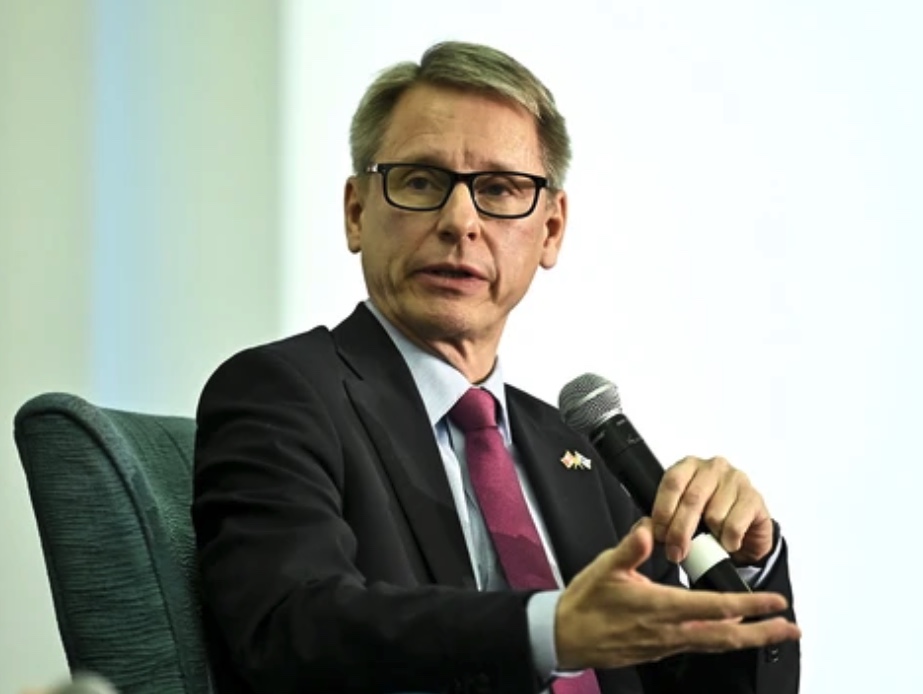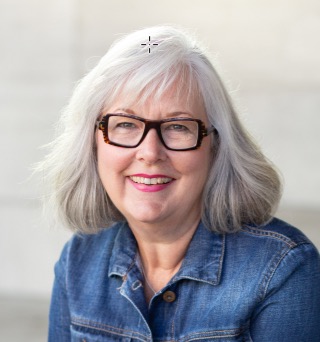Analysis: While Canada starves NATO, Finland happily embraces it
This is a new conversation series by Donna Kennedy-Glans, a writer and former Alberta cabinet minister, featuring newsmakers and intriguing personalities.
This week: Roy Eriksson, Finnish ambassador to Canada.

Roy Eriksson, Finland's Ambassador to Canada. “Last year, in February, it was (Finnish) citizens who demanded that Finland join NATO,” he says.
Photo by Justin Tang/The Canadian Press/File
Happiness — it’s complicated. Consider Finland, ranked the happiest nation in the world for the past five years.
It’s a Nordic country sharing a 1,340-kilometre border with Russia; conscription into military service is compulsory. In a country of less than six million, 280,000 militia and 900,00 reservists can be called up at a moment’s notice. Yet after decades of peaceful coexistence, the Finns joined the NATO military alliance.
Does that make Finland happier?
One person qualified to shed some light on how Finns remain “happy” in the face of adversity is the Finnish ambassador to Canada, Roy Eriksson. I had met Roy for breakfast one Saturday morning at a posh golf course in Calgary, weeks before the COVID-19 virus shut down travel; he was curious to understand how Albertans deal with energy transition. From his diplomatic perch in Ottawa, Roy has made the trek to western Canada several times during his tenure in Canada, including three visits to Calgary.
Our second meeting is virtual, and in spite of his navy suit and tie — diplomats have long dressed in dark blue and black — the normally reserved ambassador is quite animated by Finland’s formal admission to NATO. Behind him, the office appears minimalist: hardwood floors, white walls, and three flags (Finnish, Canadian and EU) planted on a window ledge.
Roy’s posting in Canada ends this summer, at which time he’ll be returning home to Helsinki to be assigned a new position on home turf. He’s been answering lots of questions these past few weeks, most of a high-level geopolitical nature. I’ll get to that but first, I want to understand what makes Finns tick. After decades of official neutrality, how did the Finnish people cohere — so rapidly and overwhelmingly — on a decision to join NATO?
The door to joining NATO was always open, Roy answers, but it was understood that a government decision wouldn’t happen without a referendum. “That thinking went out of the window when Russia brutally attacked again,” Roy continues. “Russia had already annexed Crimea in 2014, and last year, in February, it was (Finnish) citizens who demanded that Finland join NATO.” Within three months of the attack on Ukraine, Finland had made a democratic decision, well discussed within Parliament, and citizens weren’t protesting. Even parties ideologically opposed to NATO said it was time to relinquish neutrality and seek shelter within the military alliance.
What lies within the psyche of this “happy” nation, to move forward so quickly on such a significant decision? History, Roy explains: “When Russia attacked Ukraine in February, everybody in Finland thought, this is a repeat of the Winter War of 1939. The Soviet Union attacked us for no cause whatsoever and we were alone.” Finns never want to be alone again.
“Sisu” is the trait in Finns’ national character often cited to explain their grim determination in the face of hardship. It doesn’t sound much like happiness, but Roy assures me there is a correlation: “We have a very severe climate, like in Canada, and during the agrarian society, you didn’t survive if you didn’t plan ahead and if you didn’t cooperate.” And prepare they do: until recently, bomb shelters were included in building codes and there’s a public-private sector system to ensure the country has supplies of grain, fuel, pharmaceuticals and so forth on hand in a crisis.
Finns’ happiness is also greatly influenced by citizens’ access to nature; to quality education, healthcare and childcare; to work-life balance. But, in Roy’s view, trust is the secret sauce. “We have a high degree of trust towards our fellow countrymen and also to authorities. Police rank as the most trusted. Doctors, teachers and police.” And even this most seasoned diplomat can’t resist adding, “If you go not very far from here (downtown Ottawa), you would probably not put the police at the top.”
What’s in store for the future of Canada-Finland relations? Finland doesn’t need Canada’s oil and gas. The Finns have hydropower, and are investing heavily in offshore wind and nuclear power. But collaborating to figure out ways to speed up the mining and processing of critical minerals for electric vehicles is a shared priority, Roy suggests. “The biggest Canadian investment in Finland is in mining … We are looking at the regulatory framework for mining because it takes too long, like in Canada. We need the critical minerals tomorrow, not in 15-20 years time.”
And there are the ice-breakers. The Canadian government needs to build ice-breakers and there is a possibility of collaboration with shipyards in Finland. “Trade-wise, over 90% of all trade (in Finland) goes by boat so that’s why we need to keep the shipping lines open,” Roy explains. “That’s why we’re the world’s best at building ice-breakers because our lives depend on it.”
Roy reports all this with a smile on his face. Doing whatever it takes to feel more secure, and to defend their country’s sovereignty, has long been part of the happiness algorithm for Finns. It’s unlikely that a diplomat is going to call out Canada’s shortcomings but it’s worth thinking about how much happier Canadians might be if we could up our game on security.
Link to original article: National Post
